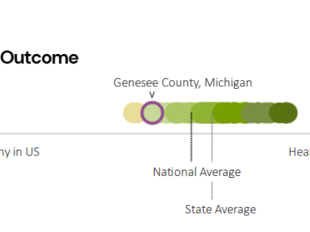What Works for Health: Education Strategies Added
Education is one of the key factors that can make communities healthier places to live, learn, work, and play – but when we try to improve education, what works? To help communities tackling this question, we added four new strategies to What Works for Health (WWFH).
Three of these strategies are rated Scientifically Supported, the highest of WWFH’s six evidence ratings:
- Enhance instruction with educational technology. Incorporating technology like computer programs and interactive whiteboards into traditional instruction helps kids learn more in reading and math.
- Knowledge is Power Program (KIPP). In low income areas, KIPP charter schools improve kids’ reading and math scores more than typical traditional public schools.
- Summer learning programs. Summer learning programs help kids catch up or get ahead in reading and math, counteracting summer break learning loss.
Strategies rated Scientifically Supported have been tested in many studies, with consistently positive results. Strategies with this rating are worth a close look–they are most likely to make a difference. Other strategies are also worth considering--implementing a strategy with a lesser rating suggests the need for a more cautious approach with a need to closely monitor outcomes to be sure they are making the difference you hope for.
Through WWFH, the County Health Rankings & Roadmaps program helps communities select and implement evidence-informed strategies that improve health through changes to health behaviors, clinical care, social and economic factors, and the physical environment. We consider quantity, quality, and findings of relevant research in our ratings, giving the most weight to the strongest studies.
Visit What Works for Health to find new policies, programs, or systems changes to address your community’s needs, or to inventory your current efforts. If you are interested in a strategy but don’t find it in WWFH, let us know so we can consider adding it.



